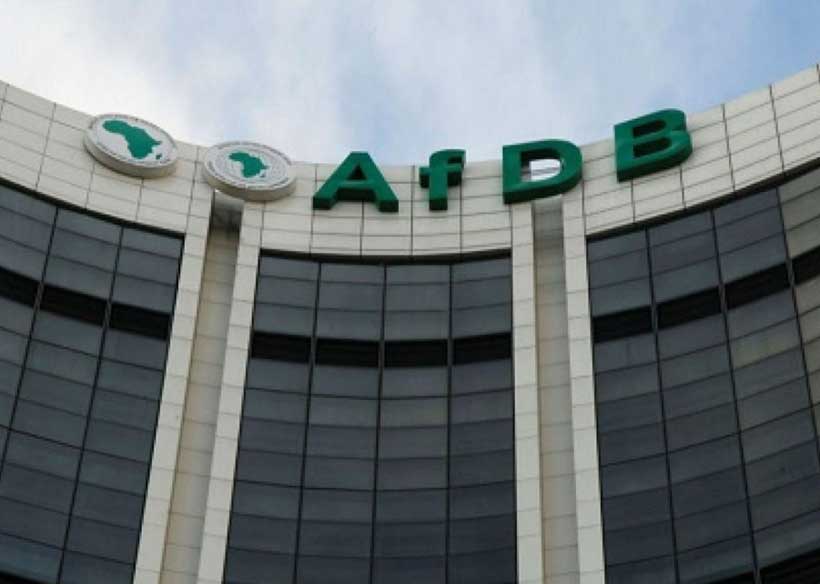AfDB Backs Namibia’s Revenue Reforms, Boosting Tax Collection by 67%
The AfDB, for its part, remains committed to supporting Namibia’s fiscal modernization agenda through continued technical assistance, policy dialogue, and investment in institutional capacity.

- Country:
- Ivory Coast
In a major success story for fiscal reform and governance in Africa, the African Development Bank Group (AfDB) has hailed the remarkable achievements of the Namibia Revenue Agency (NamRA), which has collected 275.8 billion Namibian dollars in just under five years—representing a 67 percent increase in domestic revenue mobilisation since its establishment.
The impressive gains mark a pivotal milestone in Namibia's public finance transformation, achieved through the AfDB's long-term support for tax administration reform, economic governance, and institutional capacity building.
"Without the African Development Bank's support, the agency may not have achieved this milestone," said Sam Shivute, Commissioner of the Namibia Revenue Agency. "The agency aspires to be a world-class organisation, and our annual domestic revenue mobilisation has been growing consistently, exceeding expectations."
Transforming Namibia's Tax Administration
The creation of NamRA in 2021, under the Namibia Revenue Agency Act (No. 12 of 2017), marked a major step in the country's fiscal reform agenda. The agency was established as an autonomous entity responsible for tax assessment, collection, and enforcement, with the goal of improving efficiency, transparency, and compliance.
The AfDB has been instrumental in supporting Namibia's journey toward fiscal autonomy through successive budget support operations between 2017 and 2022, and more recently through technical assistance grants that enhance institutional performance.
On 17 December 2024, the Bank approved a $342,000 Middle-Income Country Technical Assistance Fund (MIC-TAF) grant to finance the Namibia Tax Administration Technical Assistance Project. The project aims to strengthen NamRA's operational capacity and data-driven decision-making to ensure sustainable and inclusive growth.
Strategic Focus: Building Fiscal Strength and Sustainability
The AfDB's support to Namibia aligns with its broader strategic goal of enhancing domestic resource mobilisation (DRM) across the continent. With declining levels of official development assistance (ODA), African nations are increasingly turning inward to finance their own development agendas through more efficient and equitable tax systems.
The NamRA project focuses on three key strategic areas:
-
Specialised audits of key economic sectors to improve compliance and widen the tax base.
-
Capacity building for NamRA staff, focusing on advanced analytics, audit techniques, and enforcement procedures.
-
Strengthening data analytics and risk management systems to detect tax evasion, close leakage points, and improve transparency.
"By strengthening NamRA's institutional capacity, the African Development Bank is not only closing revenue leakages but also enhancing fiscal space and laying the foundation for sustainable economic development," said Baboucarr Koma, Chief Governance Officer at the African Development Bank, who led the Bank's supervision mission in Windhoek.
A Stronger Fiscal Base for Development
The results of these reforms are already visible. Namibia has emerged as one of the top-performing countries in Africa in terms of tax-to-GDP ratio, which stood at 26.2 percent in 2023, well above the African Tax Administration Forum (ATAF) average of 15.1 percent. This strong performance underscores the country's success in diversifying its tax base beyond the mining sector, especially through enhanced corporate taxation and VAT compliance.
According to officials from the Ministry of Finance and Public Enterprises, the improved performance of NamRA has strengthened the government's ability to fund social programs, infrastructure projects, and economic diversification initiatives while maintaining fiscal discipline and reducing reliance on external borrowing.
"Strengthening NamRA's capacity enhances revenue mobilisation and allows the government to invest more in its people, infrastructure, and long-term prosperity," said one ministry official.
Strengthening Governance and Reducing Fiscal Deficits
By boosting domestic revenue, Namibia is making significant progress in reducing its fiscal deficit, which has been a major driver of public debt. The reforms are also helping to improve fiscal transparency and governance, ensuring that public resources are used efficiently to support national development priorities.
The AfDB's assistance has been pivotal in helping Namibia modernize its tax administration systems, improve inter-agency coordination, and enhance the legal framework for tax compliance. These efforts contribute directly to macroeconomic stability, private sector confidence, and sustainable fiscal management.
A Model for Africa
Namibia's success serves as a model for other African nations seeking to strengthen domestic revenue collection and reduce dependency on external aid. Through AfDB's technical assistance, NamRA has become an example of how strategic reforms can yield tangible outcomes in a relatively short period.
"As Namibia continues its journey toward inclusive growth and sustainable development, this partnership with the African Development Bank demonstrates the power of strategic technical assistance to drive transformative change," said Koma, adding that Namibia's achievements "set a benchmark for tax administration reform across Africa."
Looking Ahead: Toward Inclusive and Sustainable Prosperity
As Namibia consolidates its progress, NamRA is looking to further digitalize tax administration, enhance taxpayer services, and improve compliance through data integration and real-time monitoring systems. These innovations will not only strengthen fiscal resilience but also support the country's broader economic goals under Vision 2030 and the Fifth National Development Plan (NDP5).
The AfDB, for its part, remains committed to supporting Namibia's fiscal modernization agenda through continued technical assistance, policy dialogue, and investment in institutional capacity.
Namibia's experience demonstrates that when governance, innovation, and international partnerships align, African countries can achieve lasting progress toward self-reliance, fiscal sustainability, and inclusive development.









